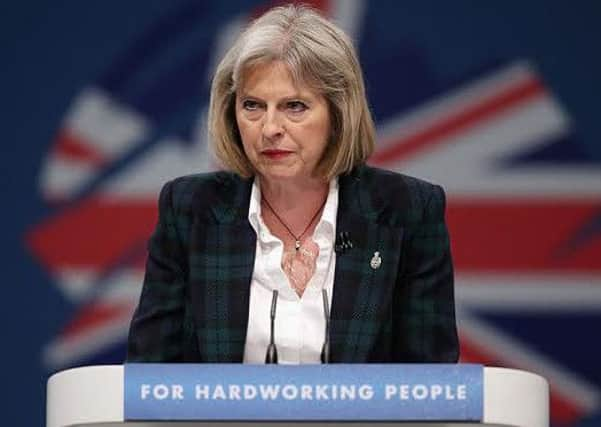After Powerhouse '˜betrayal', four more of Theresa May's policy changes since becoming PM


These are some of the key changes:
• Hinkley Point
Mrs May shocked the business world when she ordered a last-minute halt to finalising plans for the Hinkley Point nuclear power plant because she wanted the situation to be reviewed.
Advertisement
Hide AdAdvertisement
Hide AdAfter French energy giant approved the £18 billion project in Somerset at a board meeting on Thursday, the Government was expected to rubber stamp the project. Years of complex negotiations had resulted in EDF agreeing to build Hinkley Point, with the Chinese government providing a third of the investment.
But the PM’s decision to consider the “component parts” of the deal, amid national security concerns over China’s involvement in critical UK infrastructure, angered Beijing.
Mrs May has been accused of having a “suspicious approach” to China, and could be rowing back on Mr Osborne’s careful wooing of the nation’s key players.
An Open Letter to the Prime Minister, from The Yorkshire Post on Yorkshire Day and Theresa May’s response
• Economy
Advertisement
Hide AdAdvertisement
Hide AdIn his final days as chancellor, Mr Osborne abandoned the central pledge of his economic plan - to return the public finances to surplus by 2020. This was widely seen as a move forced by the Brexit vote.
New Chancellor Philip Hammond has since raised the possibility of “resetting” tax and spending policy if the economy continues to take a downturn in the lead-up to his Autumn Statement.
Mr Hammond has also said he may be willing to take advantage of low interest rates to borrow to invest in infrastructure. This would a significant break with so-called “Osbornomics”.
Meanwhile, Mrs May has co-opted the rhetoric of Mr Cameron’s old foe, Ed Miliband, to express her desire for “an economy that works for all” and not just the “privileged few”.
• Whitehall
Advertisement
Hide AdAdvertisement
Hide AdMrs May’s decision to scrap the Department for Energy and Climate Change was condemned by green campaigners and signalled a potential move away from Mr Cameron’s vow to lead the “greenest government ever”.
Although the former PM was widely mocked for his “hug a husky” antics and was once reported to have told ministers to “get rid of all the green crap” to try to bring down energy bills, Mrs May’s choice is seen by some as a significant shift.
While reshuffling the Cabinet and creating two new departments in the wake of the Brexit vote, the new Prime Minister also scrapped the position of Syrian refugees minister.
The Government has argued that Richard Harrington was appointed to the previous position to make sure the Syrian persons vulnerable relocation scheme “got off to a good start”, and Home Office ministers already have responsibility for asylum.
• Brexit
Advertisement
Hide AdAdvertisement
Hide AdBringing Britain out of the EU was forced by the electorate and is the most significant task facing the new Government. It is something Mr Cameron could not have undertaken, given his leadership of the Remain campaign.
Mrs May has insisted “Brexit means Brexit”, but still faces questions over how she will end free movement of EU citizens to control immigration while keeping UK access to the single market, which is seen as crucial by much of the business world.
New Cabinet posts have been created to unpick such conundrums, with Brexit Secretary David Davis and International Trade Secretary Liam Fox leading the Government’s effort.
The appointment of Boris Johnson as Foreign Secretary was a decision rumoured to be under consideration by Mr Cameron, but it remained a huge surprise when taken by Mrs May.